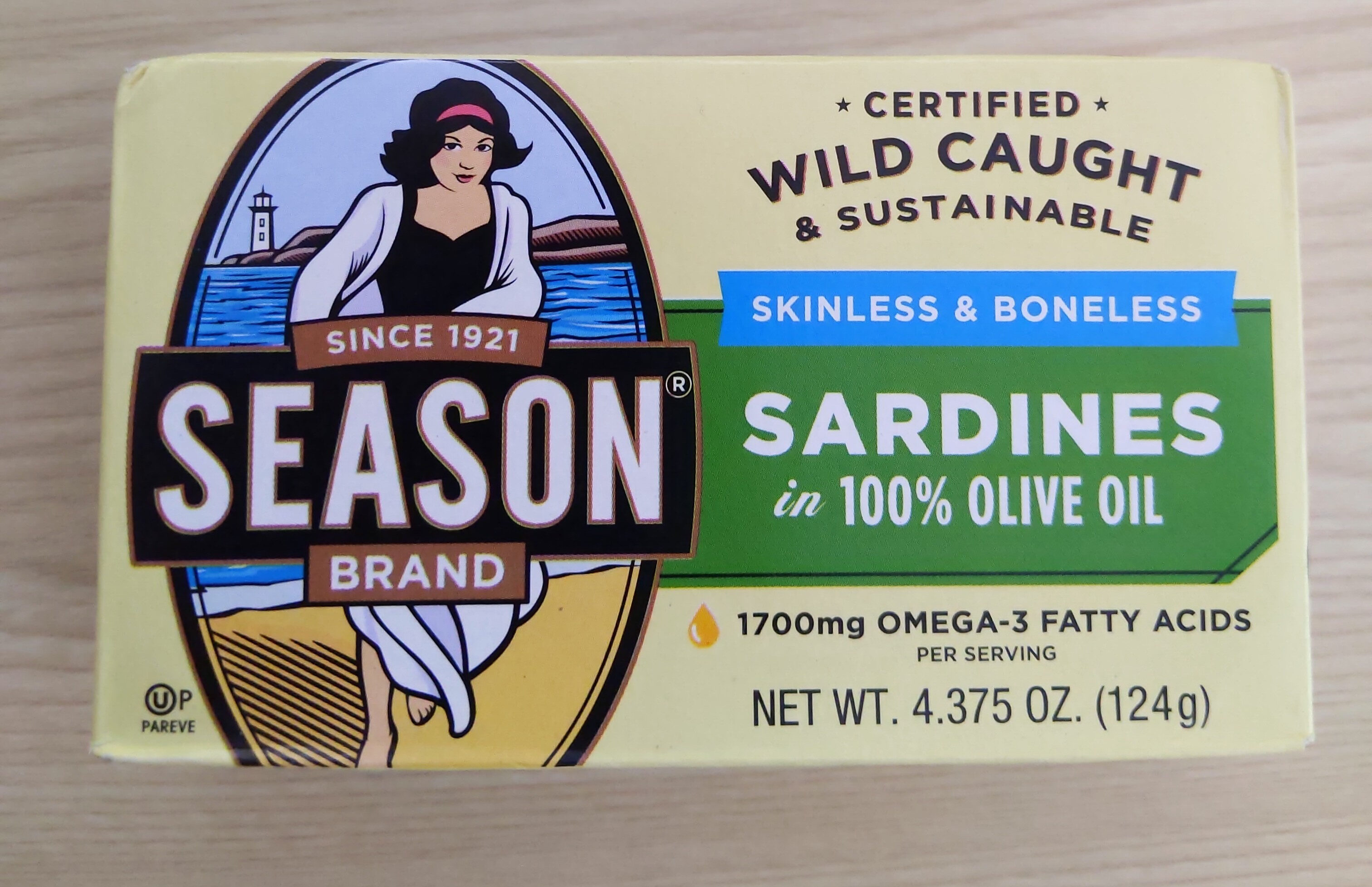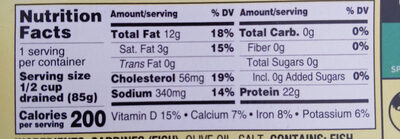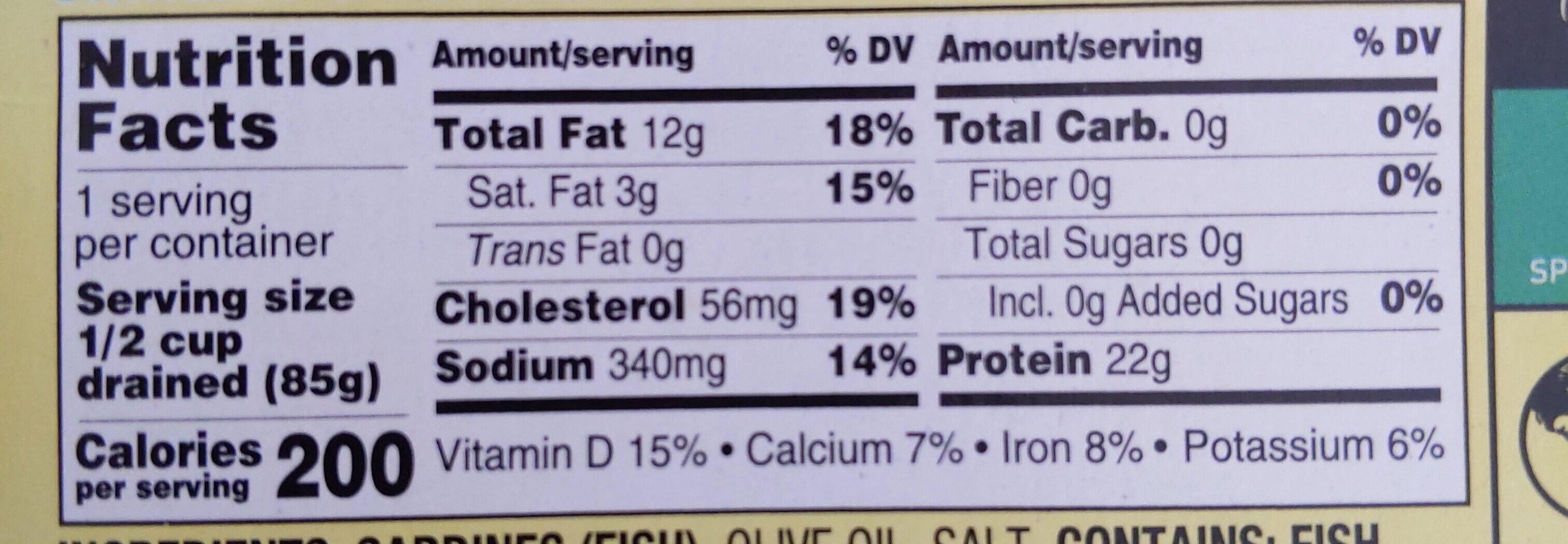Sardines in olive oil - Season - 6
This product page is not complete. You can help to complete it by editing it and adding more data from the photos we have, or by taking more photos using the app for Android or iPhone/iPad. Thank you!
×
Barcode: 0070303022160 (EAN / EAN-13) 070303022160 (UPC / UPC-A)
Quantity: 6
Brands: Season
Brand owner: SEASON BRAND
Categories: Seafood, Fishes and their products, Canned foods, Fishes, Fatty fishes, Canned fishes, Sardines, Canned sardines, Sardines in oil, Sardines in olive oil
Labels, certifications, awards:
Kosher, No GMOs, Kosher-parve, Non GMO project
Origin of ingredients: Morocco
Countries where sold: Spain, United States
Matching with your preferences
Environment
Carbon footprint
Packaging
Transportation
Report a problem
Data sources
Product added on by usda-ndb-import
Last edit of product page on by macrofactor.
Product page also edited by 5m4u9, acuario, c0rnd0gz, clockwerx, foodless, foodvisor, nataly, omnomnotes-app, openfoodfacts-contributors, org-app-elcoco, org-database-usda, seife19, teolemon.









